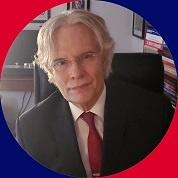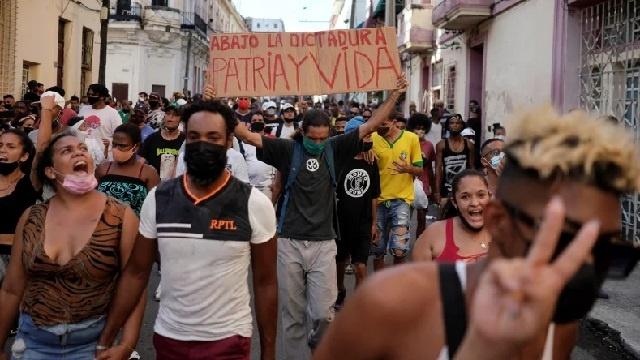"The 11th of July Popular Uprising (11J) of 2021 marked a watershed moment for the communist dictatorship in Cuba."
Hannah Arendt argued that the totalitarian mode of exercising power was structured to reduce humans to objects. This was not just an effect of the non-democratic operative model. It was a methodical necessity to maximize control and curtail political action against it. In The Origins of Totalitarianism (1951), Arendt equated spontaneity with freedom. Once a regime manages to crush popular spontaneous activity, humans, by becoming atomized entities, are dehumanized and serve the political power as tools. From a practical standpoint, once political action regains the ability to act spontaneously in public, the totalitarian regime is in trouble.
The 11th of July Popular Uprising (11J) of 2021 marked a watershed moment for the communist dictatorship in Cuba. It is true that opposition to Cuban communism has been an ongoing phenomenon. Since 1959 until this day, Cubans have incessantly charted courses of liberation, both by violent and nonviolent means. Thousands have died and hundreds of thousands have served prison terms fighting for Cuba’s freedom. However, the Castro regime had never confronted mass popular demonstrations, from one point of the Cuban archipelago to the other, like that eventful midsummer Sunday in 2021.
Castro-Communism was caught completely off guard. Over seventy-two localities in Cuba witnessed popular demands for the end of socialism and tyranny. The Marxist dialectical motor of history had suddenly deviated from the Leninist script. This revealed two important facts. One, the Cuban people, despite having suffered over six decades of communist counterculture inculcation, were decidedly calling for deep-rooted systemic change. In other words, no more communism run by an oligarchic clan. This meant that Marxist, godless propaganda was no match for universal truths and principles that subscribe to a transcendental order. The Cuban people were exercising their natural rights and appealing to the preeminent morality of natural law.
The second seminal aspect of 11J was the affirmation that Castroism is vulnerable. Totalitarian regimes depend on their ability to streamline predictability in social behavior. Public manifestations, insisting that the problem is political and not merely economic, signal a collapse of Cuban communism’s ability to subjugate popular spontaneity. The regime’s ability to stifle political opposition in the public realm was totally defeated on 11J.
Revolutions and historical processes never occur in isolated vacuums. They are typically the product of a mixture of components. International factors, regime conspirators, crises, and financial resources' depravity are just a few of the parts that make for a comprehensive government toppling. In all the mentioned items, the imponderability of certain events offers seminal causal support to historical shaping. There are usually unforeseen and seemingly unimportant occurrences that historians overlook or render inconsequential. It is a mistake to minimize the importance of spontaneity in struggles for liberty.
No single figure or organization led or coordinated the 11J mass protests. Its success was probably due to the high level of organizational decentralization and informality. Conclusions can be drawn, for example, that the over two dozen sudden deaths of high-level officials tied to the military and political police apparatus, were preemptive actions sensing a potential palace revolution. The Castro regime may have escaped its downfall in 2021. However, the beauty of imponderable acts is that they escape the totalitarian radar.
11J served to remind the Cuban people that they possess the power to impact history. The power they exercised that glorious day expunged the vicissitudes of an atomized society. The notion of power to the people proved real. Today, well over a thousand brave Cubans are languishing in gulags because they defeated communism’s dehumanization control schemes and demanded to be free. They are not just writing history. They will trigger more imponderables, which will spark other actions. Cuban communism will not always survive these liberation crusades.
© The CubanAmerican Voice. All rights reserved.
 🖋️Author Julio M. Shiling
🖋️Author Julio M. Shiling
Julio M. Shiling is a political scientist, writer, columnist, lecturer, media commentator, and director of Patria de Martí and The CubanAmerican Voice. He holds a master’s degree in Political Science from Florida International University (FIU) in Miami, Florida. He is a member of The American Political Science Association, The PEN Club (Cuban Writers in Exile Chapter) and the Academy of Cuban History in Exile.
Follow Julio on:
📚Published books 📺In the media 👨🏫 Conferences and Symposiums 🎙️Podcast The Shiling Summary


